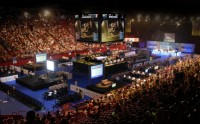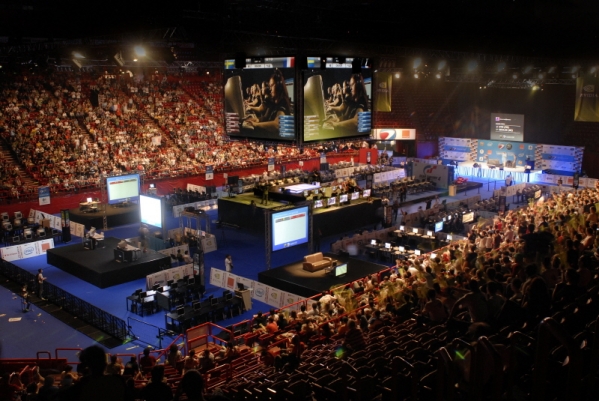
Sport (/spɔːt/) 1. an activity involving physical exertion and skill in which an individual or team competes against another or others for entertainment.
As I watched Poongko shatter Diago’s crown by getting a Perfect Victory over him in the Street Fighter IV “Final 8” matches at EVO 2011, I began to wonder if the definition of ‘Sport’ is out-dated. I came to the conclusion that it was.
Sports have been played for thousands of years and they have all involved physical activity, but what about now? Now we have a wide variety of sports all over the world from the excruciatingly physical to the not so physical yet to be defined as a sport, whatever you’re doing must involve some physical exertion. Due to this, many people will fight tooth and nail to state that competitive gaming can never be a sport. Sitting on your backside and pressing some buttons is not a sport they declare and by the classic definition, it’s hard not to say that they’re right.
However, if the definition were unsuitable to describe what a sport is then it opens up the opportunity to re-evaluate what classifies something as a sport. So let’s do that now. If we look at the games played throughout the world that are defined as sports, we’ll see a few common traits. The first trait is that they’re competitive. One or more individuals are competing against one another. There’s always a winner. The second trait is that they involve skill and an even playing field. You can’t have a competitive game if skill is not needed to win and you can’t have a balanced competition without strict rules to ensure fair play. Skill and fair play are entwined forever around sports and are crucial to a competitive environment. Without them, there’s chaos. The third trait is that they provide entertainment. Playing something competitively that involves skill and fair play is all well and good but if there’s no-one around to see it, what’s the point in calling it a sport? If only a handful of people glean entertainment from it then everyone else is going to deny it’s a sport. Sport is as much about the spectators as it is about the competitors, after all. The spectators are the ones that support your competition. The spectators are the ones that are going to continue to propagate your competition and ensure it lives on past the first generation of competitors. Without them, a competitive game is just that, a game – destined to fall into oblivion with the shifting sands of time. The fourth trait is that a sport must be organised. Rules must be written, tournaments must be set-up and arenas, no matter how small, must be found while the spectators are lured in. Just like skill and fair play, without organisation, there is chaos.
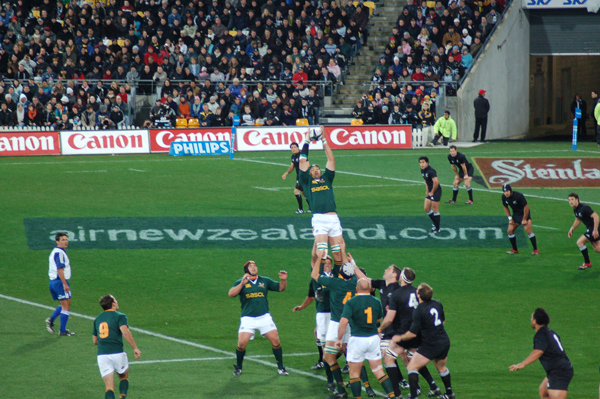
Then there’s that thorn in the side of every competitive gamer: a sport must involve physical exertion. Why is that? If we look back into the past, we’ll find that competitions of physical prowess were massively popular and of course, they still are. From gladiatorial battles to gymnastics to die-hard football fans buying England World Cup 2022 Tickets, people like watching other people perform feats of physical exertion. Watching a Rugby or American Football player charge through a handful of opposing players and plant their egg at the end of the field is an exhilarating thing to watch, for many of us. The strength and skill involved, on top of all that action, makes for exciting stuff. Not all games classified as sports require great shows of athleticism however. Games like darts or snooker are generally accepted as sports but they hardly tax the competitors. You may have to stretch or contort a bit to get the right angle on a ball or pull a muscle throwing a dart with too much vigour but you’re not going to break into a sweat, at least not from exerting yourself physically and certainly no more than your average EVO competitor might.
After considering the above points, I find it hard to think of any good reason as to why physical exertion should be a prerequisite for a competitive game to be considered a sport. Removing it opens up a whole host of competitive games to being classified as sports but does little, in my opinion, to damage the integrity of sports as a whole. As spectators, sports give us something to enjoy, a team or an individual to root for and a chance to dream, no matter our age. We’d all like to bend it like Beckham or finish a fight as only Anderson Silva can but I’m sure many of us would equally like to become one with our fighter like Diago can or dance around a keyboard like the top StarCraft players. As we watch a sport, we aspire to a level of greatness. I see the removal of this defining trait as a switch from a society that glorifies physical prowess over all else to a more balanced society that accepts that there’s more to greatness than the ability to exert yourself physically above and beyond your peers.
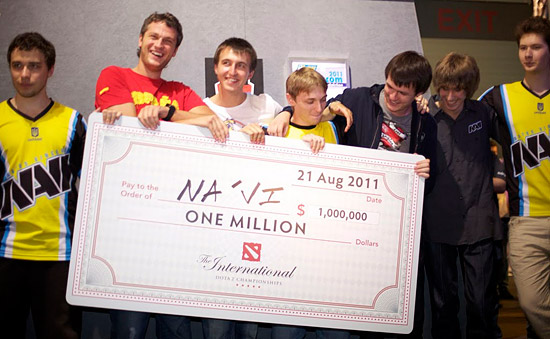
For many of us, the redefining of sport has already happened. With Valve’s recent DotA 2 tournament carrying a $1,000,000 prize and its livestream pulling in over a million viewers, there’s very little that detractors can say about the popularity of e-sports. We haven’t even touched on the StarCraft phenomenon that has captured South Korea for so long or the sale of a DotA team for $6,000,000 or the tons of amateur tournaments that are held all year round for games like Counterstrike and Call of Duty, and how can we forget the behemoth that the EVO fighting tournament has become over the past few years? E-sports have been established for quite some time but only now are they breaking into the mainstream, at least here in the West. As games become more popular, so too will e-sports, for as popular as games are these days, they still have a ways to go before they leave the basements and hands of man-children in the minds of the masses.
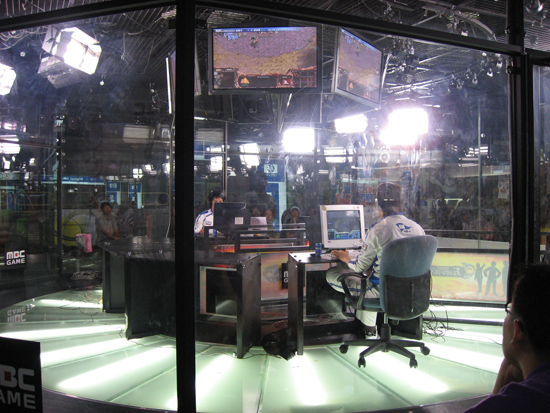
Here’s where the developers come in. Without a specific focus on making competitive games with the intention of promoting e-sports, the traction it will take for the masses to accept e-sports as sports proper may never appear. Thankfully, some developers are starting to see the benefits to promoting e-sports. Blizzard made sure not to ignore the large and profitable South Korean e-sports market when making StarCraft II and now Valve has made a statement of intent with their DotA 2 tournament; even if under this guise, it’s just a very intelligent start to a marketing campaign. The addition of integrated Youtube uploading could also be seen as a boon for e-sports, allowing competitive matches to be sent viral, right after they finish. This is starting to become commonplace in recent times too with Street Fighter 3: Third Strike HD, Team Fortress 2 supporting such integration.
Perhaps what’s really needed to push e-sports that extra mile is a collaborative effort; a base platform to work from, where developer and publisher alike could send their own teams to do battle for victory over one another. Imagine an FPS game developed solely for competitive play; balanced and tuned to such a fine point that only skill and teamwork together would ensure victory. Now imagine that game developed with the help and expertise of the best in the industry, with rules as hard and clear as diamonds and all the back-end stuff to facilitate live broadcasts. It sounds like a dream that could never come to fruition but perhaps all it would take is a couple of developers to say “you know what? This might actually work.”.
For now, we’ll have to be content with a few developers going it solo but who knows what the future may bring. I think one thing is certain however. E-sports are going to become more prevalent as the masses warm to gaming and while they may continue to deny the validity of classifying them as true sports, I believe they make for a perfect fit – new sports for a digital age.
